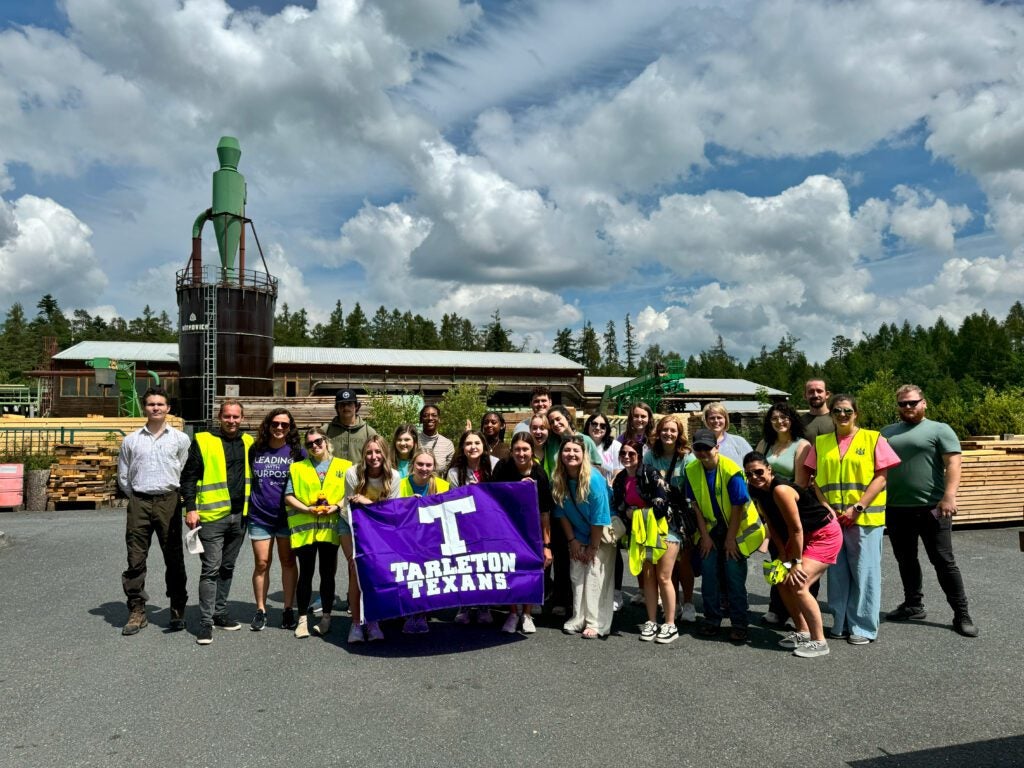Bachelor of Science in Agricultural Education
The Tarleton State University Bachelor of Science in Agricultural Education (Ag Ed) is nationally known for producing high-quality secondary agriculture teachers and FFA advisors. Ag Ed majors take classes and laboratories in the technical agriculture fields of animal science, plant science/horticulture, agricultural economics, agricultural mechanics, and professional development in agricultural education. The 4-year degree culminates in a 13-week student teaching experience where preservice teachers apply the skills and knowledge learned in the secondary settings of classroom, laboratory, FFA, and Supervised Agricultural Experiences (SAE).
Within 3 months of graduation, over 98% are hired in the profession or are admitted to graduate school. Further, program completers have multiple opportunities outside of the high school classroom. Nationwide, Ag Ed graduates have opportunities in the Cooperative Extension Service/4-H, agricultural industries, other positions within the public schools, agricultural sales, as well as in the community college system. The Tarleton State University Bachelor of Science in Agricultural Education can open doors wide … to wide-open opportunities.
What is Agricultural Education?
A combination of agriculture and business, agribusiness involves economic and commercial activities of farming-related products and services, such as machinery, seed supply, crops, breeding, ranching, processing, distribution, marketing and retail sales. The agricultural business field includes management of key resources — land, labor, capital, farming, ranching, conservation and sales — and all the required logistics, often using advanced technology.
In the United States, the economic impact of the food and fiber sector totals over $100 billion annually. Texas leads the nation in cattle, cotton, hay, sheep, goats, and mohair, as well as the number of farms and ranches, with nearly 250,000 farms and ranches covering about 130 million acres. One out of seven working Texans is in an agriculture-related job. With a rapidly changing population, the region continues to rely on agricultural production and marketing, while related recreational land use and industrial development increasingly contribute to the economy.

Estimated Completion
120 Credit Hours (4 years)
Application Process
Cost
Locations Available
College
How Much Do Agricultural Education Graduates Make?
According to a recent study by Georgetown University’s Center on Education and the Workforce, titled “What’s It Worth? The Economic Value of College Majors,” Agricultural Education is consistently among the highest-earning career fields in all of agriculture. The median earnings of agricultural economics graduates was $60,000 recently, while the average for all agricultural disciplines was $50,000.
What Classes Will You Take as an Agricultural Education Major?
The agricultural education bachelor’s degree program builds your foundation in a variety of areas, from production agriculture to marketing operations. You will study Agricultural Mechanical Services and Instruction, Agriscience Course Building, Animal Related Systems, and Premier Leadership in Agriculture. Explore additional topics in Introduction to Agricultural Services & Development, Educational Psychology, Livestock Management, and SAE Development in Agricultural Education and more.
View all required classes for the Agricultural Education bachelor’s degree.
Accreditations
How Do You Get Started on Your Bachelor’s Degree in Agricultural Education?
Take the next step toward earning your bachelor’s degree in Agricultural Education. We have the resources to help you get started.

Explore Agricultural Education in Other Cultures
Study abroad in a variety of countries, such as Czech Republic.
What Bachelor’s Degrees are Related to Agricultural Education?
- B.S. in Animal Science
- B.S. in Agricultural Communication
- B.S. in Agricultural Services and Development
- B.S. in Economics










